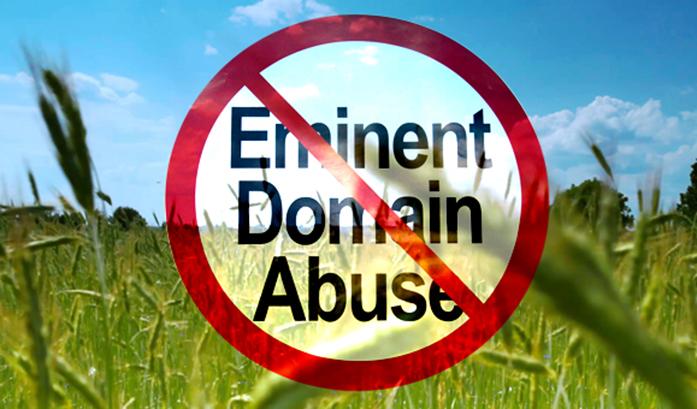Vivian Medithi
Vivian-Medithi @uiowa.edu
Do you like the place you live right now? I hope so. Maybe you live in the same house you have since childhood, or recently you maybe moved. Found a nice neighborhood, a good deal, a house that you’re excited to turn into a home. Imagine if, one day, the government knocked on your door and told you that you had to sell your home to them so they can build something to benefit the community at large. They tell you you’re sacrificing a little so the community can get a lot, and really, it isn’t even a sacrifice, because they will pay you the fair market price for your home.
Welcome to U.S. 2016; your property has been seized under eminent domain, which allows the government to take over part or all of someone’s private property for projects that allegedly benefit the public good. Up until 2005, eminent domain could only be invoked for government projects, but in Kelo v. New London (2005), the Supreme Court ruled that eminent domain could also be invoked in service of private projects, given that local government deems the project beneficial to the wider community.
In Iowa, eminent domain is at the center of disputes over the Bakken Pipeline, a crude oil pipeline being built across four states by Dakota Access. While most landowners along the pipeline have willingly acceded some of their land to Dakota Access, others have vehemently opposed construction of the pipeline on environmental grounds. North Dakota, South Dakota, and Illinois have granted Dakota Access the right to build the pipeline in these states, leaving Iowa as the final holdout.
On Aug. 25, the Iowa Utilities Board voted against an injunction on pipeline construction, on the reasoning that an injunction would hurt Dakota Access and that the landowners who sought the injunction were likely to lose their lawsuit against Dakota Access’s use of eminent domain. This should give even the staunchest supporters of the pipeline pause. The Utilities Board used its assumption of the outcome of a lawsuit as reasoning for denying an injunction; given the lengthy nature of most court cases, the pipeline is liable to be mostly completed by the time a verdict can be handed down, rendering said verdict moot.
Abuse of eminent domain worried people long before 2005, but since Kelo v. New London, concerns about eminent domain naturally increased; movements such as Occupy Wall Street and Black Lives Matter drew increased attention to the way eminent domain is wielded against lower-class citizens and abused by the police, respectively.
Eminent domain should be ended by the government altogether, but the likelihood of this happening anytime soon is essentially zero. In lieu of abolishing the practice, there should be more regulation of what projects can be deemed beneficial to the public good and more public oversight of asset seizures by local governing bodies and police.
Economic advancement is not more valuable than people’s right to their property, their homes, and the environmental implications of projects such as the Bakken Pipeline suggest that the public good they serve is lining the pockets of the wealthy, potentially at the expense of the well-being of local ecosystems and citizens. Public oversight of asset seizure by local government and police will help to curb abuses of eminent domain as well as fostering greater trust between local government and the communities they represent and serve.









